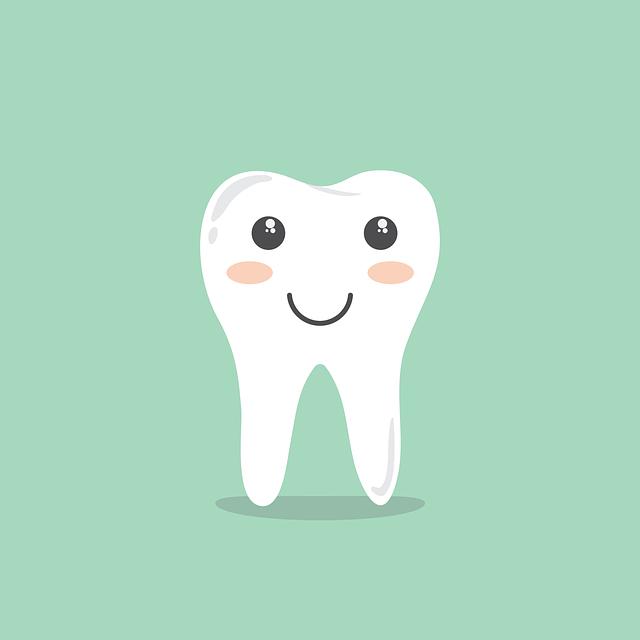Discover the ultimate solution to alleviating an abscessed tooth without stepping foot outside your home. Tested and proven remedies await!
1. Understanding Abscessed Tooth: Causes, Symptoms, and Risks
An abscessed tooth is a dental condition that occurs when a tooth becomes infected. This infection can develop in the pulp, which is the innermost part of the tooth that contains nerves and blood vessels. If left untreated, an abscessed tooth can lead to severe pain and potential complications.
Causes of an abscessed tooth:
- Poor dental hygiene, including inadequate brushing and flossing
- Tooth decay or cavities that are left untreated
- Chipped or cracked tooth, allowing bacteria to enter the pulp
- Gum disease or periodontal infection
Symptoms of an abscessed tooth:
- Severe and persistent toothache
- Inflamed or swollen gums
- Pain when chewing or biting
- Sensitivity to hot or cold temperatures
- Foul taste in the mouth or bad breath
Risks of an abscessed tooth:
- Spread of infection to surrounding tissues or jawbone
- Formation of a dental cyst or granuloma
- Development of a brain abscess or bloodstream infection in severe cases
- Loss of the infected tooth if not treated in time
If you experience any symptoms of an abscessed tooth, it is crucial to seek prompt dental treatment. A dentist can diagnose the condition and recommend appropriate treatment options, such as antibiotics or a root canal. Remember, early intervention can help prevent further complications and alleviate your discomfort.
2. The Power of Saltwater Rinse: A Simple Home Remedy for Abscessed Teeth
If you’re experiencing the agonizing pain and discomfort of an abscessed tooth, relief might be just a simple home remedy away. Saltwater rinses have long been known for their effectiveness in soothing dental issues, including abscessed teeth. This natural solution can help alleviate pain, reduce swelling, and promote healing in the affected area.
Why does saltwater work wonders for abscessed teeth? Well, the answer lies in the powerful combination of salt’s natural antimicrobial properties and its ability to draw out fluids from the affected area. When you create a saltwater rinse, you’re essentially harnessing these properties to create an environment that is hostile to bacteria while also reducing inflammation.
So, how can you make and use a saltwater rinse effectively for your abscessed tooth? It’s incredibly simple! Here’s what you need to do:
- Start by dissolving half a teaspoon of salt in a glass of warm water.
- Gently swish the saltwater around your mouth, making sure to focus on the area where the abscess is present.
- Continue rinsing for about 30 seconds to one minute, ensuring the mixture reaches all nooks and crannies.
- Spit out the rinse and then rinse your mouth with plain water to remove any remaining salt.
- Repeat this process two to three times a day or as recommended by your dentist to fully harness the benefits.
By incorporating a saltwater rinse into your dental care routine, you can effectively manage the pain and discomfort caused by an abscessed tooth. However, it’s important to note that while a saltwater rinse can provide temporary relief, it is not a substitute for professional dental treatment. Consult your dentist for a proper diagnosis and comprehensive treatment plan to address the underlying cause of your abscessed tooth.
3. Clove Oil: Nature’s Antibacterial Agent for Effective Pain Relief
Clove oil is a remarkable natural remedy that has been used for centuries due to its powerful antibacterial properties. Derived from the cloves of the Syzygium aromaticum plant, this essential oil contains a compound called eugenol, which acts as a potent antibacterial agent. Here’s why clove oil is an excellent choice for relieving pain effectively:
1. Antibacterial Action: Clove oil has been extensively studied for its ability to combat various bacterial strains. Its antibacterial properties make it an effective remedy for infections, particularly in the mouth and throat. From toothaches to gum diseases, clove oil can help fight off bacteria and reduce inflammation.
2. Analgesic Properties: The analgesic effects of clove oil make it a natural choice for pain relief. When applied topically, it numbs the affected area, providing immediate relief from discomfort caused by toothaches, headaches, or muscle pain. Its potent analgesic properties work by inhibiting the production of pain-inducing chemicals in the body.
3. Versatile Use: Apart from its antibacterial and analgesic properties, clove oil offers a wide range of applications. It can be used as a natural insect repellent, as a breath freshener, or even as an ingredient in homemade skincare products. This versatility makes it a valuable addition to any natural remedies collection.
4. Harnessing the Healing Properties of Tea Bags for Abscessed Tooth
Tea bags aren’t just for sipping on a cozy afternoon, they also have healing properties that can provide relief for an abscessed tooth. The natural compounds found in tea, such as tannins and flavonoids, possess antibacterial and anti-inflammatory properties that can help reduce pain and swelling associated with an abscessed tooth.
So, how can you harness these healing properties? Here’s what you can do:
- Steep a tea bag: Start by steeping a tea bag in hot water. Black tea, green tea, and chamomile tea are all great options due to their medicinal qualities.
- Cool it down: Once the tea bag has steeped, allow it to cool down until it’s comfortably warm to the touch.
- Apply to the affected area: Gently place the warm, moist tea bag on the affected tooth or gum. Leave it on for 15-20 minutes.
- Rinse with warm saltwater: After removing the tea bag, rinse your mouth with warm saltwater to further enhance the healing process.
Remember, tea bags are not a substitute for professional dental care. If you’re experiencing persistent pain or suspect an abscessed tooth, it’s crucial to consult a dentist for proper diagnosis and treatment. However, utilizing tea bags as a complementary home remedy can provide temporary relief while waiting for your dental appointment.
5. Garlic: A Potent at-Home Solution to Treat Abscessed Tooth Naturally
Garlic has been used for centuries as a natural remedy for various ailments, and treating an abscessed tooth is no exception. Its potent antibacterial properties can help alleviate pain and reduce inflammation caused by an abscessed tooth. Here’s how you can use garlic at home to effectively treat this dental issue:
- Raw Garlic: Peel a fresh garlic clove and crush it into a paste. Apply this paste directly to the affected area of your tooth and gums. Let it sit for 10-15 minutes before rinsing your mouth with warm water. Repeat this process 2-3 times a day for maximum benefits.
- Ginger-Garlic Paste: Mix equal amounts of garlic paste and ginger paste to create a powerful combination. Apply this paste to the affected tooth and gums, allowing it to stay for 15-20 minutes before rinsing. Regular application of this paste can help reduce pain and promote healing.
- Garlic Oil Rinse: Dilute a few drops of garlic essential oil in a small cup of warm water. Use this mixture as a mouth rinse, ensuring it reaches the affected area. Gently swish the solution around your mouth for 1-2 minutes before spitting it out. Repeat this rinse 2-3 times daily to alleviate discomfort.
Remember, garlic may cause a burning sensation when applied directly to the skin, including the gums. If you experience any persistent or severe side effects, it’s essential to consult a dentist for further evaluation and treatment. These home remedies are not a substitute for professional dental care, but they can serve as an effective complementary approach to ease symptoms associated with an abscessed tooth.
6. The Wonders of Peppermint Oil: Soothing Abscessed Tooth Pain at Home
Peppermint oil, a versatile essential oil known for its refreshing scent and cooling properties, can work wonders in soothing abscessed tooth pain from the comfort of your own home. Here’s why peppermint oil deserves a spot in your natural remedies arsenal:
1. Natural analgesic: Peppermint oil contains menthol, a powerful compound that acts as a natural pain reliever. When applied topically to the affected area, it can provide immediate relief from toothaches caused by abscesses.
2. Anti-inflammatory properties: The anti-inflammatory properties of peppermint oil help reduce swelling and inflammation associated with abscessed tooth pain. This can not only alleviate discomfort but also promote healing.
3. Antibacterial effects: Peppermint oil possesses potent antibacterial properties that can help fight the infection causing the abscess. Applying diluted peppermint oil to the affected area can assist in killing harmful bacteria and preventing the spread of the infection.
Remember, when using peppermint oil for tooth pain relief, it is crucial to dilute it with a carrier oil like coconut or olive oil to prevent any skin irritation. Apply the diluted mixture gently to the affected tooth or gums using a clean cotton ball or swab. However, it’s important to note that while peppermint oil can provide temporary relief, it is not a substitute for professional dental care. If you are experiencing severe or persistent abscessed tooth pain, it is advisable to seek immediate dental attention.
7. Vinegar’s Antimicrobial Effect: How it Can Help Alleviate Abscessed Tooth Symptoms
Vinegar’s antimicrobial properties can be highly effective in helping to alleviate the symptoms of an abscessed tooth. By targeting and eliminating harmful bacteria, vinegar can provide relief and promote healing in the affected area.
Here are some ways in which vinegar can be used to alleviate abscessed tooth symptoms:
- Rinsing with vinegar: Diluting vinegar with water and using it as a mouthwash can help reduce inflammation and pain caused by the abscess. Its antimicrobial properties can also help kill off bacteria.
- Vinegar compress: Soaking a cotton ball in vinegar and applying it directly to the affected area can provide temporary relief from pain and reduce swelling.
- Vinegar-soaked gauze: Placing a vinegar-soaked gauze pad over the abscessed tooth can help draw out bacteria and promote healing.
While vinegar can offer symptomatic relief, it’s important to note that it is not a cure for abscessed teeth. Seeking professional dental care is crucial to effectively treat the underlying cause of the abscess and prevent further complications.
8. When Home Remedies Are Not Enough: Seek Professional Assistance for Abscessed Tooth Treatment
While home remedies can sometimes provide temporary relief for an abscessed tooth, it is crucial to understand when it is time to seek professional assistance. Ignoring the signs of an abscessed tooth or attempting to self-treat can lead to serious complications and prolonged pain. Here are some instances when you should consider seeking help from a dental professional:
- If the pain persists or worsens despite trying home remedies such as saltwater rinses or over-the-counter pain medication.
- If you experience difficulty swallowing or breathing due to swelling or infection in the affected area.
- If the abscessed tooth is accompanied by a high fever or other signs of a systemic infection.
Remember, a dental professional possesses the expertise and tools necessary to properly diagnose and treat an abscessed tooth. Seeking timely professional assistance not only ensures effective treatment but also helps prevent potential complications. Don’t hesitate to schedule an appointment with your dentist if you suspect you may have an abscessed tooth.
In conclusion, when dealing with an abscessed tooth, home remedies can offer temporary relief. However, it is crucial to seek professional dental care to address the underlying issue. Remember to maintain good oral hygiene and consult a dentist for a long-term solution. Stay proactive in your dental health to prevent such painful experiences.




